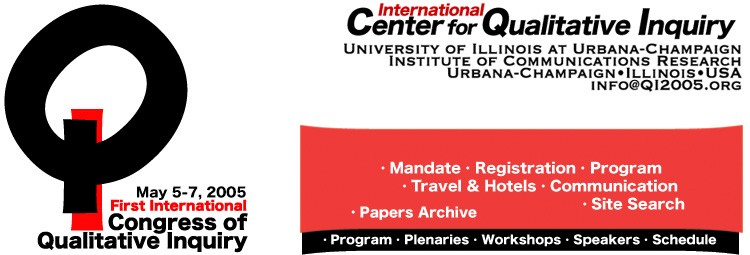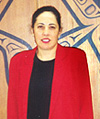
View the preliminary program HERE
Online registration is no longer available • On site registration begins Wed. May 4, 6pm
PLENARY SESSIONS
Keynote Addresses – Thursday May 5
The Politics of Evidence
Janice M. Morse, University of Alberta
Scientific Director of the International Institute for Qualitative MethodologyAbstract: Evidence, by definition is definite, hard, indisputable, unchanging. Yet, paradoxically, what counts as evidence, what we are willing to consider as evidence, and, most importantly, what we are willing to consider constitutes evidence, is fickle, irrational, and arbitrary. Criteria for defining evidence and the means by which it is accrued, is selected by passive agreement, often unchallenged, and supported by mainstream academia, policy makers and government.
Despite the important role of qualitative inquiry in developing knowledge, at present qualitative methods are generally excluded from formally contributing to evidence. Yet in many disciplines outside social sciences, qualitative methods of inquiry are considered to produce significant evidence. In this presentation I will explore alternate modes of qualitative evidence that are often ignored by social sciences.
On Tricky Ground: Researching the Native in the Age of Uncertainty
Linda Tuhiwai Smith, University of Auckland, New Zealand
Abstract: The spaces between research methodologies, ethical principles, institutional regulations and human subjects as individuals and as socially organized actors and communities constitute a tricky ground. Qualitative researchers generally learn to recognize and negotiate this ground in a number of ways. This ground is richly nuanced in terms of diverse interests through epistemological challenges to research, to its paradigms, practices and impacts. The pursuit of new scientific and technological knowledge, with bio-medical research as a specific example has presented new challenges to our understandings of what is scientifically possible and ethically acceptable. The turn back to the modernist and imperialist discourse of discovery, 'hunting, racing and gathering' across the globe to map the human genome or curing disease through the new science of genetic engineering has an impact on the work of qualitative social science researchers. Countervailing conservative forces, with a nostalgic appeal to 'simple' research paradigms, seek to disrupt any agenda of social justice that may form on such tricky ground. In this context — building on what indigenous communities have struggled for, tried to assert and have achieved — what is possible in the application of indigenous perspectives that examine the intersections of methods, ethics, institutions and communities? What are the points of arrivals and departures from commonly accepted understandings about these intersections?
Plenary Sessions — Friday May 6
1:30-3:00 pm
Plenary Session: Scientifically Based Research and the National Research Council (2002) Report
Chair: Katherine Ryan
Panelists: Yvonna S Lincoln, Earnest House, Julianne Cheek, Frederick Erickson, Nicholas Burbules, Ian Stronach3:15-4:45 pm
Plenary Session: International Perspectives on Qualitative Research and Race
Chair: Arlette Willis
Panelists: Fazal Rizvi, Luis Miron, Cameron R McCarthy, Lynn Yates

